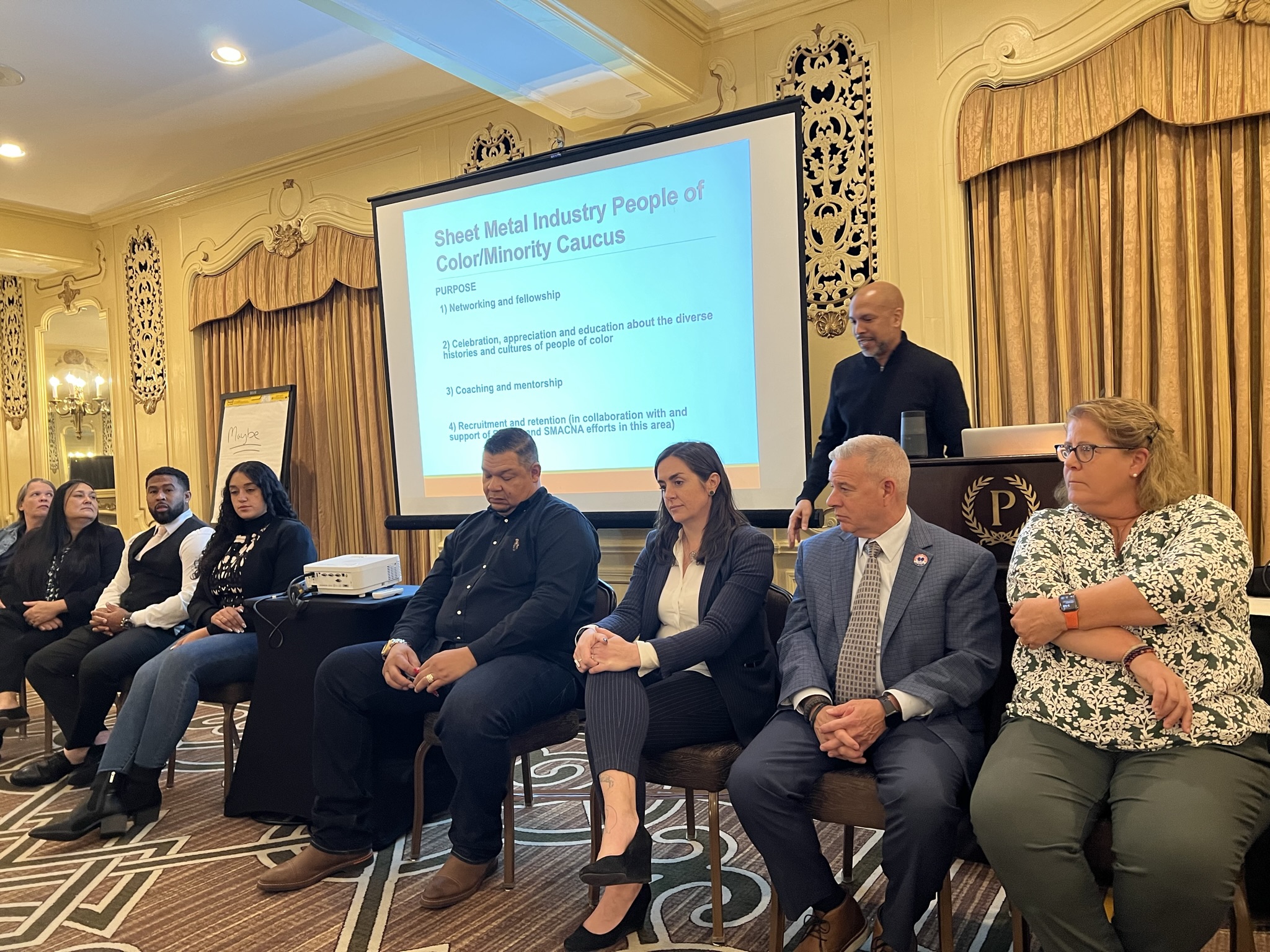Partners in Progress: SMART and SMACNA’s Labor-Management Cooperative Fund

In 2002, the International Association of Sheet Metal, Air, Rail and Transportation Workers (SMART) and the Sheet Metal and Air Conditioning Contractors’ National Association (SMACNA) created the Labor-Management Cooperation Fund (LMCF), in support of Partners in Progress (PINP). PINP formed to advance the prosperity of the sheet metal industry, the interests of the union and its members, as well as those of the employers and their customers. The Labor-Management Cooperation Fund also formed a Joint Best Practices Task Force that develops and communicates industry best practices and facilitates collaborative efforts between local labor and management to grow the industry and create new work opportunities for the industry’s workforce.
We interviewed Joye Blanscett, the Executive Director of Operations for SMACNA, and Donna Silverman, Assistant to the General President for SMART, about their experiences with Partners in Progress.
For those who are not familiar with SMACNA and SMART, can you provide a brief introduction and tell us about how this labor-management partnership is beneficial?
SMART and SMACNA collaborate to better the unionized sheet metal industry by working together on the 85-90% of issues where our two organizations share common interests and goals. This allows us to work jointly in identifying and disseminating best practices for retaining market share, providing training, ensuring safety standards are met etc., as well as working on newer priorities such as Diversity, Equity, and Inclusion, and ongoing efforts of assisting local parties in resolving disputes before they can become bigger problems.
Diversity, Equity, Inclusion, and Accessibility (DEIA) is a priority for SMACNA and SMART. Can you tell us about the Belonging and Excellence for All (BE4ALL) effort and how it helps to provide insights, resources, and best practices for everyone?
This is a multifaceted joint campaign by SMACNA, SMART, and our joint-sponsored training organization, the International Training Institute (ITI), looking to change the culture within the unionized sheet metal industry such that it is welcoming to any individual with the interest and skills required by the industry; one that is free of bullying and discrimination. Our efforts include bias and belonging training, developing and disseminating best practices, and other educational efforts aimed at appreciating the many different people that make up our industry, as well as widening the communities and areas where our industry has traditionally recruited individuals. We are also working on efforts aimed at retention. Our goal is to ensure the unionized sheet metal industry welcomes all individuals, regardless of background, who want to be members of the industry; recruit the best talent possible to uphold our culture of excellence; and that everyone is treated with dignity and respect.
With any LMP there are challenges. Has LMCF and Partners in Progress faced any challenges? How has the partnership overcome these challenges and what advice can you offer to other unions and employers involved in LMPs?
As with any labor and management group, the organizations do not always see eye-to-eye on all issues. Our strength as an LMP is to keep the lines of communication open, respect that each has our own interests, and attempt to not take the differences personally. Differences are inherent and to the extent we can attribute general good intentions to the other side and not allow the small areas where we disagree to get in the way of the much larger areas of agreement, we have been able to work through our challenges to continue our shared purpose.
Do you have any advice to pass onto others looking to create and maintain an LMP?
Understand you are not going to always agree. Don’t let the difference stop the flow of communication between the two organizations. Agree to disagree respectfully on those things you can’t work out. Pick people to lead with good communications skills who value collaboration. Recognizing that you agree on most priorities helps ensure that you will not let disagreements get in the way of a strong partnership
For more information on getting started with your own labor-management partnership, visit the Labor-Management Partnership page.
Darnice Marsh is the labor-management partnership coordinator in the Department of Labor’s Office of Labor-Management Standards.
Andrew Hasty is a senior advisor on detail with the Department of Labor’s Office of Labor-Management Standards.
This blog contains links to information created and maintained by other public and private organizations. Please be aware that the U.S. Dept. of Labor does not control or guarantee the accuracy, relevance, timeliness, or completeness of this outside information. Further, the inclusion of links to particular items is not intended to reflect their importance, nor is it intended to endorse any views expressed or products or services offered by the author of the reference or the organization operating the site on which the reference is maintained.
Misra.Aishwary…
Fri, 04/14/2023 – 12:51


Comments are closed.